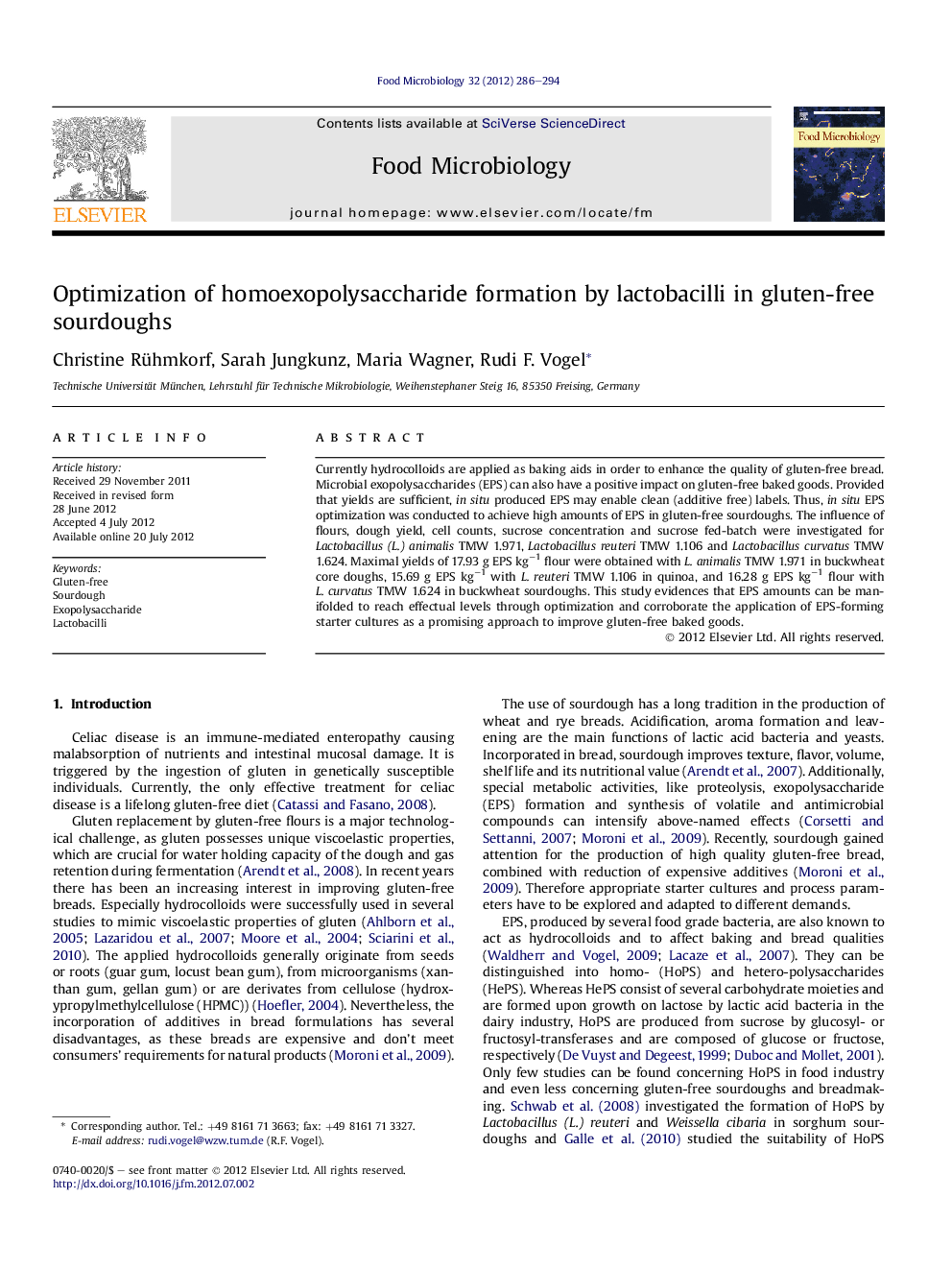| Article ID | Journal | Published Year | Pages | File Type |
|---|---|---|---|---|
| 6288977 | Food Microbiology | 2012 | 9 Pages |
Currently hydrocolloids are applied as baking aids in order to enhance the quality of gluten-free bread. Microbial exopolysaccharides (EPS) can also have a positive impact on gluten-free baked goods. Provided that yields are sufficient, in situ produced EPS may enable clean (additive free) labels. Thus, in situ EPS optimization was conducted to achieve high amounts of EPS in gluten-free sourdoughs. The influence of flours, dough yield, cell counts, sucrose concentration and sucrose fed-batch were investigated for Lactobacillus (L.) animalis TMW 1.971, Lactobacillus reuteri TMW 1.106 and Lactobacillus curvatus TMW 1.624. Maximal yields of 17.93 g EPS kgâ1 flour were obtained with L. animalis TMW 1.971 in buckwheat core doughs, 15.69 g EPS kgâ1 with L. reuteri TMW 1.106 in quinoa, and 16.28 g EPS kgâ1 flour with L. curvatus TMW 1.624 in buckwheat sourdoughs. This study evidences that EPS amounts can be manifolded to reach effectual levels through optimization and corroborate the application of EPS-forming starter cultures as a promising approach to improve gluten-free baked goods.
⺠EPS production optimized of Lactobacillus animalis, Lactobacillus curvatus and Lactobacillus reuteri. ⺠EPS yields affected by flour type, dough yield, cell counts, sucrose availability. ⺠Production of effectual amounts of EPS through optimization in sourdoughs. ⺠In situ produced EPS can replace added hydrocolloids in gluten-free baked goods.
